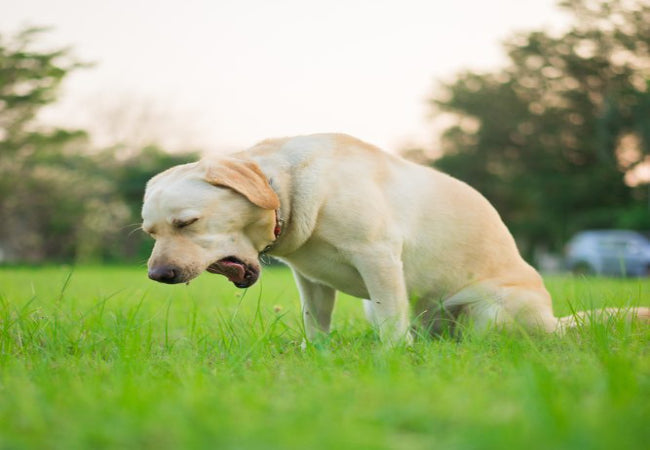Dog Coughing 2025: Causes, When to Worry & How Vets Treat It 🐶✨

In this article
Dog Coughing 2025: Causes, When to Worry & How Vets Treat It 🐶✨
By Dr. Duncan Houston BVSc
A dog cough might sound like a goose honk, a dry hack, or a wet gag—but whatever the sound, it’s your dog’s way of saying something isn’t right.
I’m Dr. Duncan Houston, veterinarian and founder of Ask A Vet. Let’s break down the causes of coughing in dogs, how to tell if it’s serious, and the most common treatments.
🔍 Types of Dog Coughs and What They Mean
1. Dry, Hacking Cough
- Often associated with kennel cough or tracheal irritation
- May sound like a honk or gagging reflex
2. Wet or Productive Cough
- Suggests fluid or mucus in the lungs
- Common in pneumonia or heart failure
3. Gagging or Retching
- May occur after coughing fits or with throat irritation
- Can mimic vomiting, but without food
4. Sudden Cough After Eating or Drinking
- Could indicate laryngeal paralysis or aspiration
📋 Common Causes of Dog Coughing
- Infectious: Kennel cough, canine influenza, pneumonia
- Chronic airway disease: Tracheal collapse, chronic bronchitis
- Heart disease: Congestive heart failure, mitral valve disease
- Parasites: Lungworm, heartworm
- Foreign bodies: Grass seeds, toys, food
- Allergies: Environmental allergens causing airway inflammation
⚠️ When to See a Vet
- Cough lasts more than 3–5 days
- Cough worsens or becomes more frequent
- Accompanied by lethargy, breathing difficulty, or blue gums
- Dog collapses after coughing
- Loss of appetite or fever
🩺 How Vets Diagnose a Cough
- Physical exam and chest auscultation
- X-rays or ultrasound of the chest
- Heartworm testing, fecal testing for parasites
- Bloodwork or PCR swabs for respiratory infections
💊 Treatment Options
For Infectious Causes:
- Cough suppressants (if non-productive)
- Antibiotics for bacterial infections
- Rest and isolation to prevent spread (especially with kennel cough)
For Heart Disease:
- Diuretics (e.g., furosemide)
- Heart medications like pimobendan or ACE inhibitors
For Tracheal Collapse:
- Weight management and avoiding neck pressure
- Bronchodilators or cough suppressants
🏡 Home Care Tips
- Use a harness instead of a collar for dogs prone to tracheal issues
- Minimize exposure to smoke, dust, and allergens
- Keep your dog calm and rested during recovery
🔗 Helpful Tools from Ask A Vet
- Explorer Harness – Designed to avoid neck pressure in dogs with airway or tracheal issues
- Ask A Vet – Upload videos of your dog’s cough and get expert vet advice instantly
📋 Summary Excerpt
Not all coughs are the same. A vet explains the different types of dog coughs, what they might mean, and how to treat and manage them safely at home or with veterinary care.
❓ FAQs
-
Q: Can kennel cough go away on its own?
A: Mild cases often resolve in 7–10 days, but see a vet if it worsens or if your dog is very young, old, or immune-compromised. -
Q: Why does my small dog cough when excited?
A: This may be tracheal collapse—common in small breeds like Yorkies or Pomeranians. -
Q: Is coughing a sign of heart disease?
A: Yes. If your dog has a persistent, wet cough, especially at night, it may be heart-related and needs vet care.






